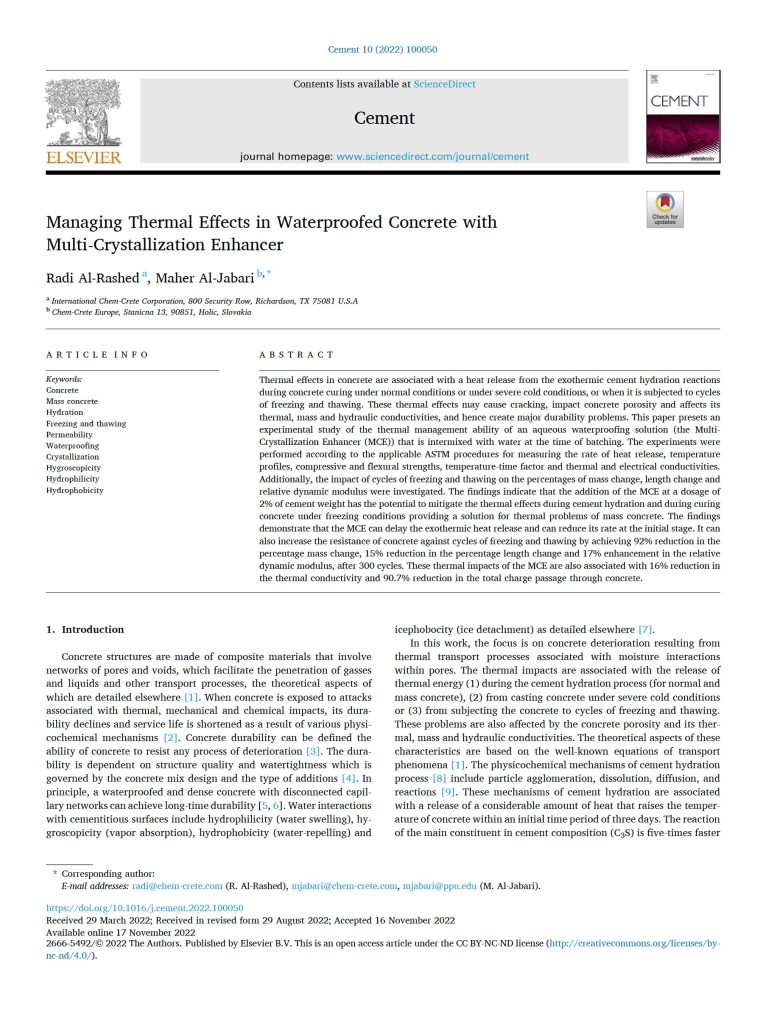Managing Thermal Effects in Waterproofed Concrete with Multi-Crystallization Enhancer
by Radi Al-Rashed and Maher Al-Jabari
Journal: CEMENT, Volume 10, December 2022, 100050
https://www.sciencedirect.com/science/article/pii/S2666549222000299
Abstract
Thermal effects in concrete are associated with a heat release from the exothermic cement hydration reactions during concrete curing under normal conditions or under severe cold conditions, or when it is subjected to cycles of freezing and thawing. These thermal effects may cause cracking, impact concrete porosity and affects its thermal, mass and hydraulic conductivities, and hence create major durability problems. This paper presets an experimental study of the thermal management ability of an aqueous waterproofing solution (the Multi-Crystallization Enhancer (MCE)) that is intermixed with water at the time of batching. The experiments were performed according to the applicable ASTM procedures for measuring the rate of heat release, temperature profiles, compressive and flexural strengths, temperature-time factor and thermal and electrical conductivities. Additionally, the impact of cycles of freezing and thawing on the percentages of mass change, length change and relative dynamic modulus were investigated. The findings indicate that the addition of the MCE at a dosage of 2% of cement weight has the potential to mitigate the thermal effects during cement hydration and during curing concrete under freezing conditions providing a solution for thermal problems of mass concrete. The findings demonstrate that the MCE can delay the exothermic heat release and can reduce its rate at the initial stage. It can also increase the resistance of concrete against cycles of freezing and thawing by achieving 92% reduction in the percentage mass change, 15% reduction in the percentage length change and 17% enhancement in the relative dynamic modulus, after 300 cycles. These thermal impacts of the MCE are also associated with 16% reduction in the thermal conductivity and 90.7% reduction in the total charge passage through concrete.
Keywords: concrete, mass concrete, hydration, freezing and thawing, permeability, waterproofing, crystallization, hygroscopicity, hydrophilicity, hydrophobicity.
Highlights
- The Multi-Crystallization Enhancer (MCE) at a dosage of 2% can manage thermal effects in fresh and cured concrete.
- The MCE can mitigate the thermal effects during cement hydration.
- The MCE can permit concrete curing under freezing conditions.
- MCE increases the resistance of concrete against cycles of freezing and thawing by 92%.
- The thermal impacts of the MCE are associated with 16% reduction in the thermal conductivity.


